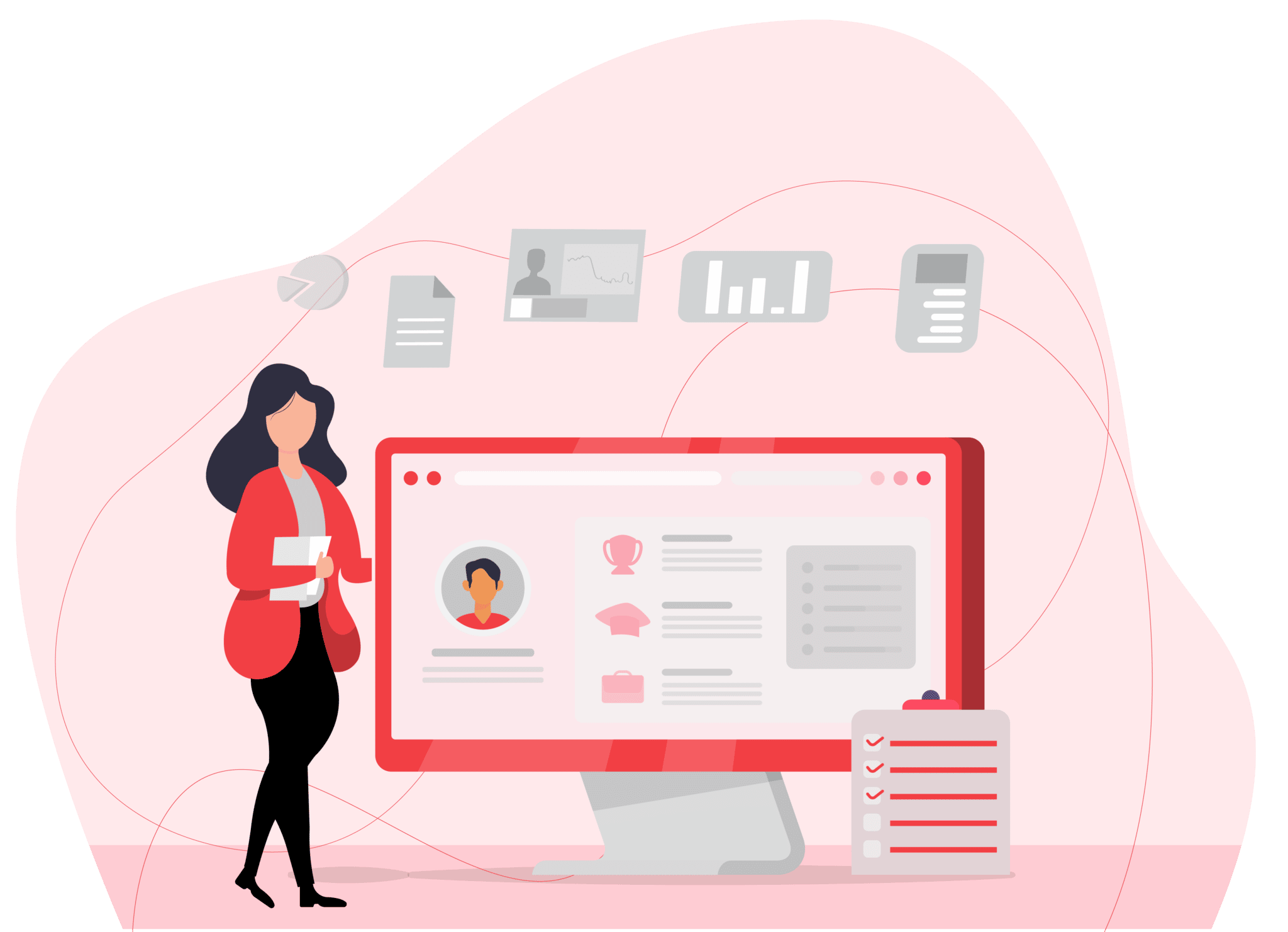Market forecasting is the process of predicting how various economic variables like commodities, stocks, currencies, and other financial instruments may move in the future. It is an important skill for hiring HR professionals, since these professionals need to be well-trained to accurately assess the strength and attractiveness of specific markets and predict how those markets may move in the future.
The ability to successfully assess and predict future market movement is essential for any HR professional. Unfortunately, many in the profession lack the requisite skills to do so. To ensure that candidates hired for positions in HR possess the necessary market forecasting skills, it is essential that employers evaluate those skills during the recruitment process.
Based on insights from an industry report by MarketResearch.com, evaluating market forecasting skills is crucial for making informed business decisions and staying ahead in a competitive market.
In this blog post, we will explore five tips on how to effectively evaluate the market forecasting skills of potential candidates. We will look at specific questions HR professionals can (and should) ask while interviewing candidates and the criteria used to evaluate answers given. We will also discuss the importance of industry experience, the benefits of objective evidence, and the need for further training and development where necessary.
By following our five tips to evaluate market forecasting skills, employers can be confident that they are selecting candidates who possess the necessary skills to accurately assess and predict future market movements. This will ensure that those hired are able to contribute to meeting the company’s goals and objectives.
We hope that by the end of this blog, employers will feel empowered to thoroughly evaluate the market forecasting skills of potential HR professionals. This will help ensure that your organisation is able to benefit from individuals who possess the necessary skills to accurately assess and predict future market movements.
Assessing understanding of market trends and dynamics
Hiring the right employees is a necessary requirement for the successful operation of any business. It is crucial for HR professionals to be able to evaluate the prospective employees’ skills and abilities when it comes to market forecasting. This is particularly true of employees who are expected to help the organization reach its long term objectives.
To assess whether an individual is well versed on market trends and dynamics, HR professionals should observe the candidates’ previous experiences and approaches to forecasting. This can be done through analyzing the candidate’s past performance records, their use of market research, and their familiarity with relevant industry metrics. It is also important to note the individual’s level of expertise in relevant software and financial modeling systems.
The knowledge of an individual’s current market insights and expertise in the interpretation of market data should also be evaluated. This includes their ability to analyze competitor and customer behavior, understand the current market conditions, and draw conclusions from the data.
In addition, the individual’s ability to anticipate future trends and detect emerging patterns should be assessed. This includes their ability to identify potential risks and opportunities, and develop strategies to capitalize on them.
Finally, it is important for HR professionals to evaluate the candidate’s communication skills. This includes their ability to effectively present the findings of their research and forecasting efforts.
By evaluating the prospect’s understanding of market trends and dynamics, HR professionals can better assess whether or not the candidate is the right fit for the job. This is essential for ensuring that the organization has the best talent on board.
Evaluating data collection and analysis techniques
Data collection and analysis techniques are integral components in market forecasting. Having strong data collection and analysis skills allows for much-needed insights to be drawn from historical and current data trends that can be used to make predictions on future market conditions. For HR professionals, assessing and evaluating applicants’ data collection and analysis skills is an important step in determining their market forecasting aptitude. Here are five tips to evaluate market forecasting skills when it comes to data collection and analysis techniques:
Analyze their approach: Evaluating how the applicant approaches data collection and analysis techniques is key to assessing their forecasting abilities. Ask them to explain their methods and what sources they use to collect data. Look for an applicant who is detail-oriented and can articulate their processes, as this indicates an ability to draw meaningful insights from collected data.
Gauge their problem-solving skills: An applicant’s problem-solving skills in terms of data collection and analysis can provide valuable insight into their market forecasting ability. Ask them to walk you through how they make sense of chaotic data and use analytical processes to draw conclusions.
Assess their communication skills: A recruiter should also evaluate an applicant’s ability to clearly communicate their findings through data collection and analysis. An applicant’s clear communication skills can indicate whether or not they are competent in gathering data, understanding the results, and accurately communicating their insights to the team.
Assess their understanding of data analytics tools: Knowing how an applicant utilizes data analytics tools such as Excel, Tableau, and Python can provide insight into their market forecasting skills. Understanding the fundamentals of these tools and how to use them to draw meaningful insights can significantly improve their market forecasting capabilities.
Evaluate their ability to stay up-to-date: Assessing an applicant’s understanding of current approaches and methods relating to data collection and analysis is important in determining their market forecasting aptitude. Ask them to discuss how they are staying up-to-date with the latest techniques and information in their field to gain competitive advantages.
By considering these five tips, HR professionals can make more informed decisions on an applicant’s data collection and analysis skills. Evaluating an applicant’s data collection and analysis techniques provides invaluable insight into their potential market forecasting ability.
Testing forecasting accuracy
Forecasting accuracy is essential when it comes to recruiting and managing talent in the workplace. Accurate forecasting helps organizations make informed decisions about staffing and resources, which can have a significant impact on their bottom line.
Fortunately, there are a number of ways that HR professionals can evaluate the accuracy of their market forecasting skills. Here are five tips to help them get started:
Analyze Historical Data: Historical data can give insight into how accurate a forecast can be. It can also be used to identify patterns and potential weaknesses in the forecasting process. HR professionals should regularly review and assess this data to ensure their predictions are as accurate as possible.
Use Best Practices: HR professionals should always follow best practices when it comes to market forecasting. This includes utilizing the latest market trend reports, staying up-to-date with industry news, and researching competitor activities. Following these practices can help ensure that a company is making informed decisions about its staffing needs and resources.
Leverage Technology: Technology is an invaluable tool for HR professionals when it comes to forecasting accuracy. Utilizing automated market intelligence tools, such as those offered by software companies like Salesforce, can help streamline the forecasting process and ensure accurate results.
Monitor Market Changes: Market conditions can change quickly and unexpectedly, so it is important for HR professionals to stay alert. Monitoring changes in the marketplace can help them proactively prepare for any possible shifts or shifts that could affect hiring and resource decisions.
Review Forecasting Results: It is essential for HR professionals to review the results of their forecasting efforts. Doing so can help them identify potential issues and areas for improvement in their process. It is also important to compare results with predictions to ensure that forecasts are as accurate as possible.
By following these tips, HR professionals can ensure that their market forecasting skills are as accurate as possible. Doing so can help their organizations make more informed decisions about staffing and resources, which can have a major impact on a company’s bottom line.
Analyzing statistical models and predictive analytics
Predictive analytics is an invaluable tool for recruiters and HR professionals who need to ensure they are making the right decisions during the recruitment process. With the help of the right statistical models, recruiters can get an accurate picture of the candidate’s skills and competencies. This is where predictive analytics comes in, as it helps HR professionals to make informed decisions during the recruitment process.
Using predictive analytics techniques, recruiters and HR professionals can collect, analyze, and interpret data to better understand the recruitment process. Predictive analytics also helps HR professionals to identify trends in the market, as well as potential risks associated with a particular candidate. By using these techniques, recruiters can make more accurate decisions when selecting potential job applicants.
The first step in evaluating market forecasting skills is to analyze the statistical models used to predict outcomes. By looking at the underlying assumptions and techniques used in the analysis, recruiters can determine the accuracy of the predictions. It is important to remember that different statistical models have different strengths and weaknesses, so it is essential to be aware of which models are best suited to the task at hand.
The next step in evaluating market forecasting skills is to analyze the predictive analytics used by the candidate. This involves assessing the methods, techniques, and assumptions used to generate predictive analytics. By doing so, recruiters can be sure that the analytical methods used are relevant to the particular problem and that the results are valid and reliable.
Finally, recruiters should consider the accuracy of the predictions made by the candidate’s predictive analytics. This can be achieved by comparing the predictive analytics results with historical data. If the predicted results match the actual outcomes, then the candidate has strong market forecasting skills and is likely to be a valuable asset to the organization.
In conclusion, predictive analytics is an invaluable tool for recruiters and HR professionals who need to make the right decisions during the recruitment process. By assessing the statistical models and predictive analytics used by the candidate, recruiters can get an accurate picture of the market and identify potential risks associated with a particular job applicant. By doing so, recruiters can be confident that they are making the right decisions when it comes to selecting potential job applicants.
Evaluating industry knowledge and research skills
No matter how good a marketer or analyst may be, the skills the industry they are employed in is just as important. Evaluating industry knowledge and research skills is an essential part of the recruitment process for HR professionals. As no two industries are the same, candidates must demonstrate their understanding of the competitive landscape and research skills for them to be considered for a role.
To effectively evaluate industry knowledge and research skills, HR professionals should ask the candidate specific questions about their experience and past accomplishments. Questions should focus on the candidate’s understanding of market trends, competitive dynamics and the latest industry research. This helps HR professionals assess the candidate’s ability to extract and interpret information relevant to the job.
The recruitment process should also include evaluation of online research skills. In today’s digital age, candidates must be adept at using the internet in order to find relevant data and information. As such, HR professionals should evaluate the candidate’s ability to find and analyze data from various sources, apply it to the work context, and explain their interpretation in an organized manner.
HR professionals should also assess the candidate’s communication skills. Presentation and communication skills are invaluable when interpreting industry information and researching potential strategies. During the recruitment process, HR professionals should ask the candidate to explain their views on how the industry is changing and how the company can adapt to it. This will help HR professionals evaluate the candidate’s ability to articulate their ideas clearly.
Finally, HR professionals should ask the candidate to explain their methods of evaluating market trends and forecasting potential outcomes. This requires a clear understanding of the industry and its players, and the candidate must be able to explain how they use data-driven decision making to develop strategies. By evaluating market forecasting skills, HR professionals can confirm whether the candidate’s processes and techniques are aligned with the company’s goals and objectives.
Through evaluating industry knowledge and research skills, HR professionals can make sure the right individuals are hired and that their skills are aligned with the company’s goals. The recruitment process should be tailored to each industry, and candidates should be asked specific questions that will allow HR professionals to accurately evaluate their candidate’s industry knowledge and research skills.
Conclusion
Recruitment of the right personnel for the right position is a crucial part of any HR professional’s job. Market forecasting skill is one such skill that can be challenging to evaluate. However, there are some tips that HR professionals can use to assess the market forecasting skills of a potential candidate.
Overall, it is essential for HR professionals to assess and evaluate market forecasting skills of a potential candidate with the help of the aforementioned tips. This can be beneficial for the growth of the organization and ensure timely and cost-efficient recruitment.
Testlify offers a range of assessments and challenges that allow you to gauge candidates’ knowledge, problem-solving skills, and creativity in real-world scenarios. With Testlify, you can administer real-world challenges that simulate the actual assessment process, giving candidates the opportunity to showcase their skills and approach to market forecasting. The platform provides a structured and standardized assessment process, allowing you to compare candidates objectively and make informed decisions. By incorporating Testlify into your hiring process, you can ensure a more comprehensive and reliable evaluation of candidates’ market forecasting skills, ultimately helping you identify the most qualified individuals for your team.
With our extensive test library, you can objectively evaluate candidates’ abilities, ensuring you shortlist the most talented individuals efficiently. Ready to unlock the potential of your hiring process? Book a free 30-minute live demo with Testlify. Our expert team will guide you through the platform, showcasing relevant skill tests tailored to your organization’s needs. With our support, you can streamline candidate selection, saving valuable time and resources.








